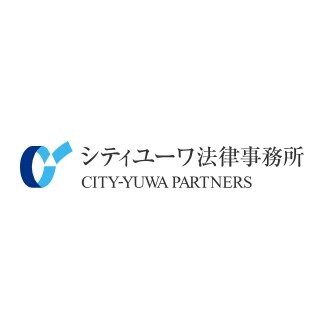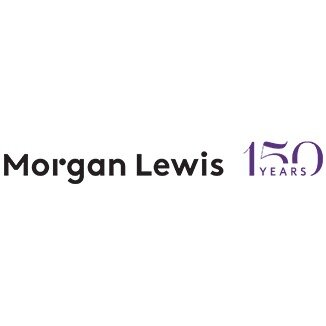Best Patent Lawyers in Chiyoda-ku
Share your needs with us, get contacted by law firms.
Free. Takes 2 min.
List of the best lawyers in Chiyoda-ku, Japan
About Patent Law in Chiyoda-ku, Japan
Chiyoda-ku, located in the heart of Tokyo, is a bustling district known for its blend of tradition and innovation. As a hub for many businesses, technology, and creativity, understanding patent law is crucial for both individuals and corporations seeking to protect their inventions. Patent law in Japan, governed by the Japan Patent Office (JPO), offers inventors the exclusive rights to their inventions, encouraging innovation and economic growth. This framework is critical in Chiyoda-ku, where many innovative companies operate and require legal understanding to secure their intellectual property.
Why You May Need a Lawyer
Engaging a patent lawyer might be necessary for several situations including:
- Patent Application: Navigating the intricate process of applying for a patent, which involves detailed documentation and specific requirements.
- Patent Infringement: Addressing situations where your patent rights are violated or when you're accused of infringing on someone else's patent.
- Patent Portfolio Management: Strategizing and managing a portfolio of patents to maximize business value.
- International Patents: Handling patents across multiple jurisdictions, given the global operations of many companies in Chiyoda-ku.
- Legal Disputes: Representing your interests in court or other legal settings in case of disputes regarding patent rights.
Local Laws Overview
Patent laws in Japan are well-structured, aiming to balance the inventor's rights with public interest. Key aspects include:
- The Patent Act of Japan which outlines the process for obtaining a patent and the rights of the patent holder.
- The requirement for novelty, inventive step, and industrial applicability for a patent to be granted.
- Patent duration typically lasts 20 years from the filing date, after which the invention becomes public property.
- The necessity to file patents through the Japan Patent Office, which reviews and grants patents.
- Japan's active participation in international treaties like the Paris Convention and Patent Cooperation Treaty (PCT), facilitating international patent protection.
Frequently Asked Questions
What is a patent?
A patent is an exclusive right granted for an invention, which is typically a product or process that offers a new way of doing something or provides a new technical solution to a problem.
Who can apply for a patent?
Both individuals and legal entities can apply for patents in Japan. The applicant must be the inventor or have the rights to apply for the invention from the inventor.
How long does the patent application process take?
The process can take several years, typically between 1 to 3 years, depending on the complexity of the patent application and backlog at the Japan Patent Office.
Can I apply for a patent if my invention has been publicly revealed?
Japan allows a 12-month grace period from the date of public disclosure to file a patent application, provided the disclosure was by the inventor.
What are patent trolls, and are they common in Japan?
Patent trolls are entities that enforce patent rights against alleged infringers, often with no intention to manufacture or market the patented invention. Japan has legal measures to discourage such practices, making trolls less common than in other jurisdictions.
What is a patent family?
A patent family is a set of patents filed in various countries to protect the same invention. This is vital for international businesses to ensure global protection.
How can I check if an invention is already patented in Japan?
You can search the JPO's patent database, which is accessible online, to verify whether an invention is already patented in Japan.
What if I get rejected by the Japan Patent Office?
If your application is rejected, you may request a trial for patent invalidation, which involves a review by a board at the JPO. Legal counsel can assist in improving application validity.
How can I enforce my patent rights?
If you believe your patent rights are infringed, you can take legal action which often involves negotiations, and if unresolved, court proceedings can be considered.
Are there costs involved in patenting in Japan?
Yes, the patenting process involves application fees, examination fees, and annual patent maintenance fees once granted.
Additional Resources
For further assistance and information regarding patents in Japan, consider the following resources:
- Japan Patent Office (JPO): The primary governmental body overseeing patent law and application processing.
- Intellectual Property High Court of Japan: This court hears appeals from decisions made by the JPO, providing legal recourse for disputes.
- Japan International Patent Law Association (JIPLA): Offers insights and networking opportunities for patent professionals.
- World Intellectual Property Organization (WIPO): Facilitates international patent applications under the PCT.
Next Steps
If you find yourself needing legal assistance for a patent in Chiyoda-ku, Japan, consider taking the following steps:
- Consult a Qualified Patent Lawyer: Look for attorneys who specialize in intellectual property and are familiar with Japanese patent law.
- Schedule an Initial Consultation: Many law firms offer initial consultations where you can discuss your case and understand available options.
- Gather Relevant Documentation: Organize all necessary paperwork and evidence related to your invention or patent dispute for a comprehensive review by your lawyer.
- Consider a Strategic Patent Plan: Work with your lawyer to develop a long-term strategy for managing and protecting your patents.
Lawzana helps you find the best lawyers and law firms in Chiyoda-ku through a curated and pre-screened list of qualified legal professionals. Our platform offers rankings and detailed profiles of attorneys and law firms, allowing you to compare based on practice areas, including Patent, experience, and client feedback.
Each profile includes a description of the firm's areas of practice, client reviews, team members and partners, year of establishment, spoken languages, office locations, contact information, social media presence, and any published articles or resources. Most firms on our platform speak English and are experienced in both local and international legal matters.
Get a quote from top-rated law firms in Chiyoda-ku, Japan — quickly, securely, and without unnecessary hassle.
Disclaimer:
The information provided on this page is for general informational purposes only and does not constitute legal advice. While we strive to ensure the accuracy and relevance of the content, legal information may change over time, and interpretations of the law can vary. You should always consult with a qualified legal professional for advice specific to your situation.
We disclaim all liability for actions taken or not taken based on the content of this page. If you believe any information is incorrect or outdated, please contact us, and we will review and update it where appropriate.













